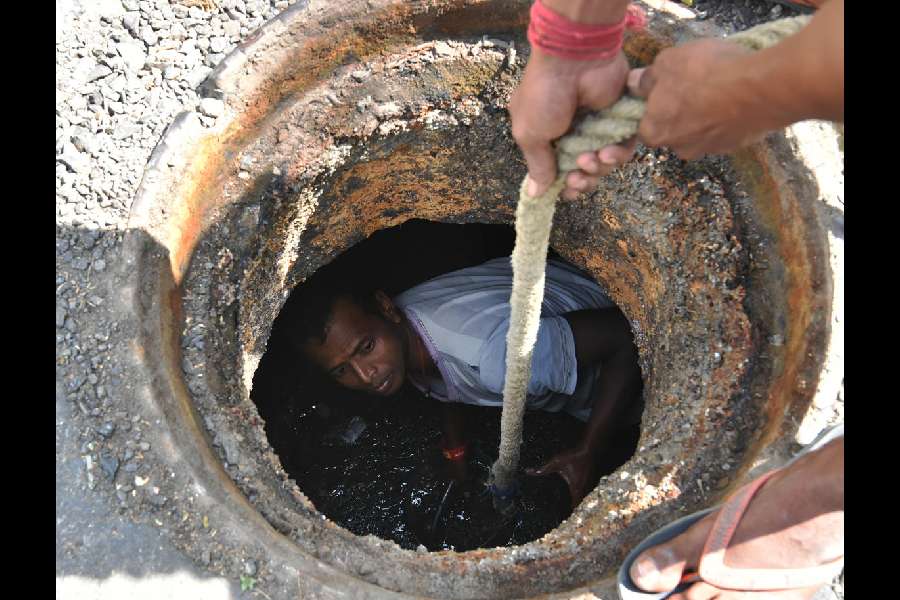Forty-three sanitation workers died while cleaning sewers and septic tanks in the six months between the interim and Union budgets, a civil society organisation said, but they were not mentioned even once by finance minister Nirmala Sitharaman in her budget speech in Parliament.
On Friday, when Congress Rajya Sabha member Jebi Mather Hisham raised in the Upper House the recent death of a 47-year-old sanitation worker in Kerala and the continuation of manual scavenging across the country, the silence of the Treasury benches was deafening.
A dozen members of the Opposition parties raised their hands to support Hisham’s demand for compensation for the family of the dead sanitation worker and a functional urban waste management plan.
“The sanitation workers, without any protectivegear or proper training, always face life-threatening situations. Despite there being a ban on manual scavenging, this dangerous practice continues to expose sanitation workers to toxic fumes and hazardous waste,” Hisham said.
The Safai Karmachari Andolan (SKA), a civil society organisation fighting for the eradication of manual scavenging, has collated data on the death of manual scavengers between February 1, 2024, when Sitharaman presented a vote on account, and July 23 when she presented the full budget for 2024-25. According to the data, 43 manual scavengers died during the period but didn’t find mention in the budget speech.
Last year, the government launched a National Action for Mechanised Sanitation Ecosystem (Namaste), which subsumed an earlier scheme for the rehabilitation of manual scavengers. The government had allocated ₹97 crore for this scheme in the 2023-24 budget but reduced the amount to just ₹30 crore in the revised budget.
This year, it has allocated ₹117 crore.
SKA national convener Bezwada Wilson said the welfare of manual scavengers was not a priority with the government.
“Manual scavenging is prevalent on a large scale in states like Uttar Pradesh, Madhya Pradesh, Jammu and Kashmir and Bihar. But the government is not ready to accept it,” Wilson told The Telegraph.
Wilson added: "We need to identify these workers, skill them for alternative occupations and provide financial support to them for undertaking new ventures. At the same time, waste management should be mechanised across the nation. But the funds allocated are very paltry. The finance minister did not take the name of manual scavengers once in her speech as if their lives do not matter."
He said the SKA regularly submits memoranda to the ministry of social justice and the National Human Rights Commission seeking compensation for family members of sanitation workers who die on duty, and reiterating the demand for a comprehensive action plan for their rehabilitation. However, the ministry has never responded, Wilson said.
Wilson said the workers involved in manual scavenging were mostly Dalits. He said the government was not ready to consider those dying in sewers and septic tanks as manual scavengers and that there was no system in place to track such deaths.
"Every time there is any such incident, the first reaction from the government is to disguise it as an accidental death," he said.
Wilson said the government had failed to regulate local authorities who don’t provide the necessary safety equipment or training to those involved in this risky work.











